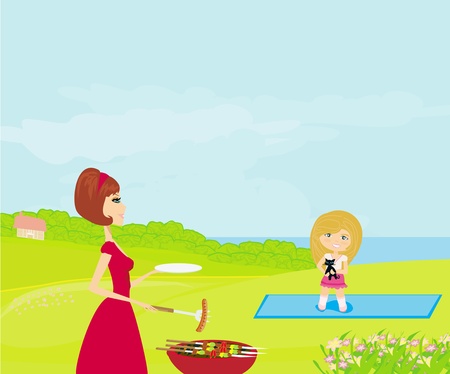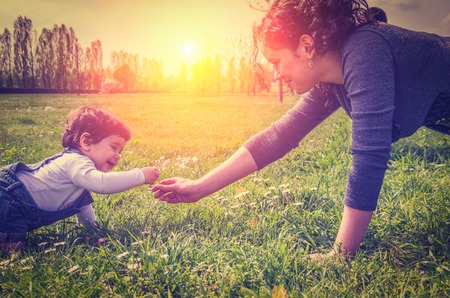Understanding Peer Support in the UK
Peer support is gaining recognition as a vital component of recovery across the United Kingdom, particularly in mental health and addiction services. Unlike traditional therapeutic approaches where professionals lead the conversation, peer support groups are shaped by individuals who have personally faced similar challenges. In the British context, this means support is often rooted in shared experience, fostering empathy, trust, and a sense of belonging that might be harder to achieve in conventional therapy settings. Peer support groups in the UK operate on principles of mutuality and collaboration, where every voice matters regardless of background or diagnosis. This community-driven model differs from top-down clinical interventions by emphasising lived experience as a source of wisdom and resilience. Through regular meet-ups, open conversations, and social activities—whether over a cuppa in a local church hall or during a walk through the park—UK peer support groups create safe spaces for honest sharing and practical encouragement. As such, they play an increasingly important role in complementing NHS services and supporting people’s journeys towards recovery.
2. Lived Experience: The Heart of Peer Support
In the context of UK peer support groups, lived experience stands as the cornerstone for fostering meaningful connections and genuine recovery journeys. When individuals share their own stories of mental health challenges, addiction, or personal struggles, they create a unique environment built on trust and mutual understanding. This shared background helps break down barriers and stigma often associated with seeking help, allowing members to feel seen, heard, and supported.
The Power of Shared Journeys
When someone in recovery hears from a peer who has “been there” themselves, it builds instant credibility. In the UK, where mental health issues are often discussed in hushed tones due to cultural norms around privacy and resilience, this openness can be transformative. People realise they are not alone – that others truly understand the nuances of their journey.
Building Trust and Empathy
The foundation of any effective peer support network is trust. Shared lived experience acts as a bridge between group members, making it easier to express vulnerabilities without fear of judgement. This natural empathy encourages honest conversations, which are crucial for sustained recovery.
Creating Effective Recovery Networks
| Key Benefits | Description |
|---|---|
| Trust | Peers relate through similar experiences, building immediate rapport and confidence in the group setting. |
| Empathy | Understanding goes beyond sympathy; peers can genuinely connect through emotional resonance. |
| Motivation | Success stories from within the group inspire hope and encourage perseverance in others. |
| Practical Advice | Lived experience means advice is rooted in reality, tailored to the UK’s healthcare landscape and local resources. |
Cultural Relevance in the UK
Lived experience also ensures that support is culturally sensitive. For example, discussing NHS services or local community initiatives makes advice more accessible. By embedding British values such as inclusivity and fairness into recovery activities—like tea-and-talk sessions or walking groups in local parks—peer support becomes even more relatable and effective for participants across England, Scotland, Wales, and Northern Ireland.

3. Cultural and Community Influences on Recovery
When exploring the role of lived experience in UK peer support groups, it’s vital to consider how local culture and community values shape each person’s recovery journey. The United Kingdom is a tapestry of diverse traditions, languages, and social norms, all of which subtly influence how individuals connect and share within peer support spaces.
The Importance of “Britishness” in Peer Support
In the UK, values such as resilience, privacy, and a sense of humour—often called the “stiff upper lip”—can both help and hinder open conversation about mental health or addiction recovery. Peer groups must navigate these cultural traits sensitively, encouraging participants to feel safe enough to open up while respecting their boundaries. Using familiar language, including regional slang or idioms, helps foster trust and relatability among group members.
Local Community Resources: A Pillar of Support
Recovery journeys in the UK are also shaped by the wealth of community resources available. From church halls hosting weekly meetings in English villages to multicultural centres supporting new arrivals in London, each setting brings unique strengths. Peer support leaders often collaborate with local GPs, mental health charities such as Mind or Samaritans, and council-run wellbeing services. These partnerships ensure that lived experience is complemented by practical guidance tailored to British systems and structures.
The Power of Shared Local Identity
Connecting over shared experiences—whether it’s navigating the NHS, dealing with housing benefits, or simply chatting over a cuppa—creates strong bonds within UK peer groups. Embracing British customs like “having a brew” during sessions or referencing popular culture can make the environment more welcoming. In this way, local identity becomes not just a backdrop but an active ingredient in empowering recovery journeys together.
4. Challenges and Opportunities in British Peer Support Groups
British peer support groups play a vital role in empowering recovery, but they also encounter unique hurdles and openings for development. Understanding these challenges and opportunities is key to ensuring the long-term success of peer-led initiatives across the UK.
Key Challenges Facing UK Peer Support Groups
| Challenge | Description |
|---|---|
| Stigma | Mental health stigma remains a significant barrier, often deterring individuals from seeking or participating in peer support. |
| Funding Limitations | Many groups rely on short-term grants, charitable donations, or local authority budgets, making sustainability a constant concern. |
| Volunteer Burnout | Peer supporters may face emotional fatigue due to the intensity of supporting others while managing their own recovery journeys. |
| Diversity and Inclusion | Ensuring representation from various cultural backgrounds and identities is an ongoing challenge, especially in rural or less diverse communities. |
Opportunities for Growth and Advocacy in the UK Context
- Policy Influence: The lived experience movement has found a receptive audience among policymakers, with opportunities to contribute to NHS England’s mental health strategy and local council initiatives.
- Community Partnerships: Collaborations with schools, youth clubs, and local charities can broaden reach and embed peer support into daily life.
- Digital Innovation: The rise of online platforms allows groups to connect people from remote areas, overcoming geographical limitations typical of some parts of the UK.
- Cultural Shifts: National campaigns like Time to Change have made it easier for peer groups to address stigma directly within British society.
Navigating the Path Forward
The balance between challenge and opportunity in British peer support requires creativity and resilience. By sharing stories of lived experience, advocating for improved funding models, and embracing digital tools, UK peer support groups are well-placed to drive positive change—both within their own communities and across the nation. Involving families in awareness activities or community events can also help reduce stigma and foster greater understanding, making recovery a truly collective journey.
5. Family Involvement and Youth Engagement
In UK peer support groups, the recovery journey is not just an individual process—it often involves the entire family unit. Including parents, carers, and young people in these groups acknowledges the powerful impact that a supportive home environment can have on building resilience and fostering holistic healing.
The Importance of Family Participation
Peer support groups across the UK are increasingly recognising that family involvement is key to sustainable recovery. Parents and carers are invited to participate in tailored sessions where they can share experiences, gain practical strategies, and develop empathy for their loved ones’ struggles. This open dialogue helps break down stigma, encourages early intervention, and nurtures a sense of community within families themselves.
Empowering Young People through Engagement
Youth engagement is at the heart of many successful peer support initiatives. Programmes designed for children and teenagers allow them to voice their experiences and feelings in safe spaces, often facilitated by mentors with lived experience. By involving young people directly, these groups help them build self-confidence, learn coping skills, and realise they are not alone on their journey—key elements for strengthening emotional resilience.
Holistic Approaches to Recovery
The most effective UK peer support models recognise that recovery extends beyond the individual to include family dynamics. Activities such as group discussions, creative workshops, and joint problem-solving tasks encourage families to heal together. This holistic approach ensures that everyone feels valued and supported throughout the recovery process.
By actively involving parents, carers, and young people in peer support groups, UK communities are fostering environments where lived experience becomes a catalyst for growth, understanding, and lasting change.
6. The Future of Peer Support in the UK
As we look to the future of peer support in the UK, it’s inspiring to see how lived experience continues to shape recovery journeys in new and meaningful ways.
Emerging Trends: Digital & Hybrid Support
One of the most exciting developments is the rise of digital and hybrid peer support models. With online platforms, individuals can now access support from anywhere—whether they’re in bustling London or a quiet village in Yorkshire. These digital spaces offer flexibility, inclusivity, and privacy, making it easier for parents, carers, and young people alike to connect with others who truly understand their journey.
Government Strategies: Prioritising Mental Health
The UK government has made mental health a top priority, recognising the crucial role of peer support in promoting recovery and resilience. Recent strategies focus on increasing funding for community-based groups, developing training programmes for peer mentors, and integrating lived experience into NHS services. This means more opportunities for families to find tailored support close to home—and more recognition of the value that every individual’s story brings.
Community Initiatives: Building Local Networks
Grassroots initiatives are blossoming across the country, from Scotland to Cornwall. Local councils and charities are working together with schools, youth centres, and faith groups to create safe spaces where everyone feels welcome. These collaborations empower parents and children alike to take part in activities—from arts and crafts sessions to outdoor adventures—that build confidence, foster friendships, and encourage open conversations about mental health and wellbeing.
A Bright Path Forward
The future of peer support in the UK is brighter than ever. By combining personal stories with innovative technology and strong community ties, we can help even more individuals feel empowered on their journey towards recovery. Whether you’re a parent seeking advice, a young person looking for someone who “gets it,” or simply curious about how you can get involved—there’s a place for you in this growing movement.
Together We Empower Change
As we continue to champion lived experience at every level—from government policy to local playgroups—the UK’s peer support landscape will keep evolving. The hope is that every family will have easy access to compassionate, understanding networks that celebrate strengths, nurture growth, and inspire lifelong resilience.

